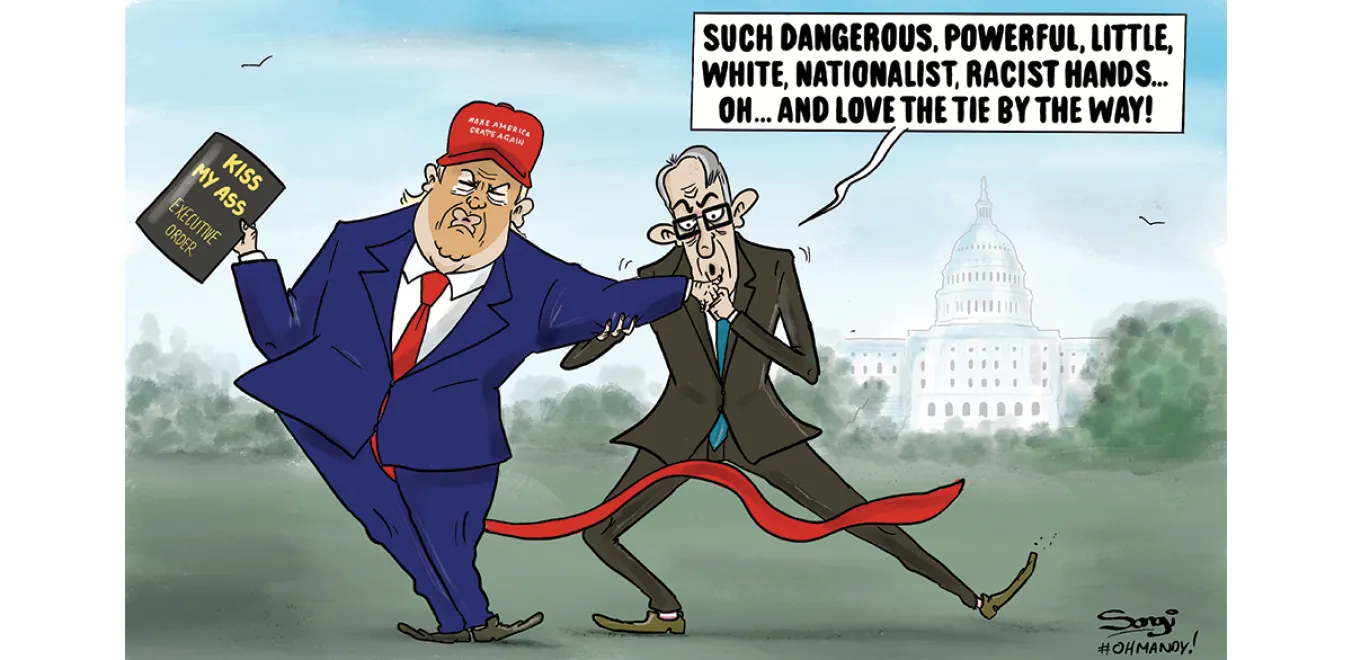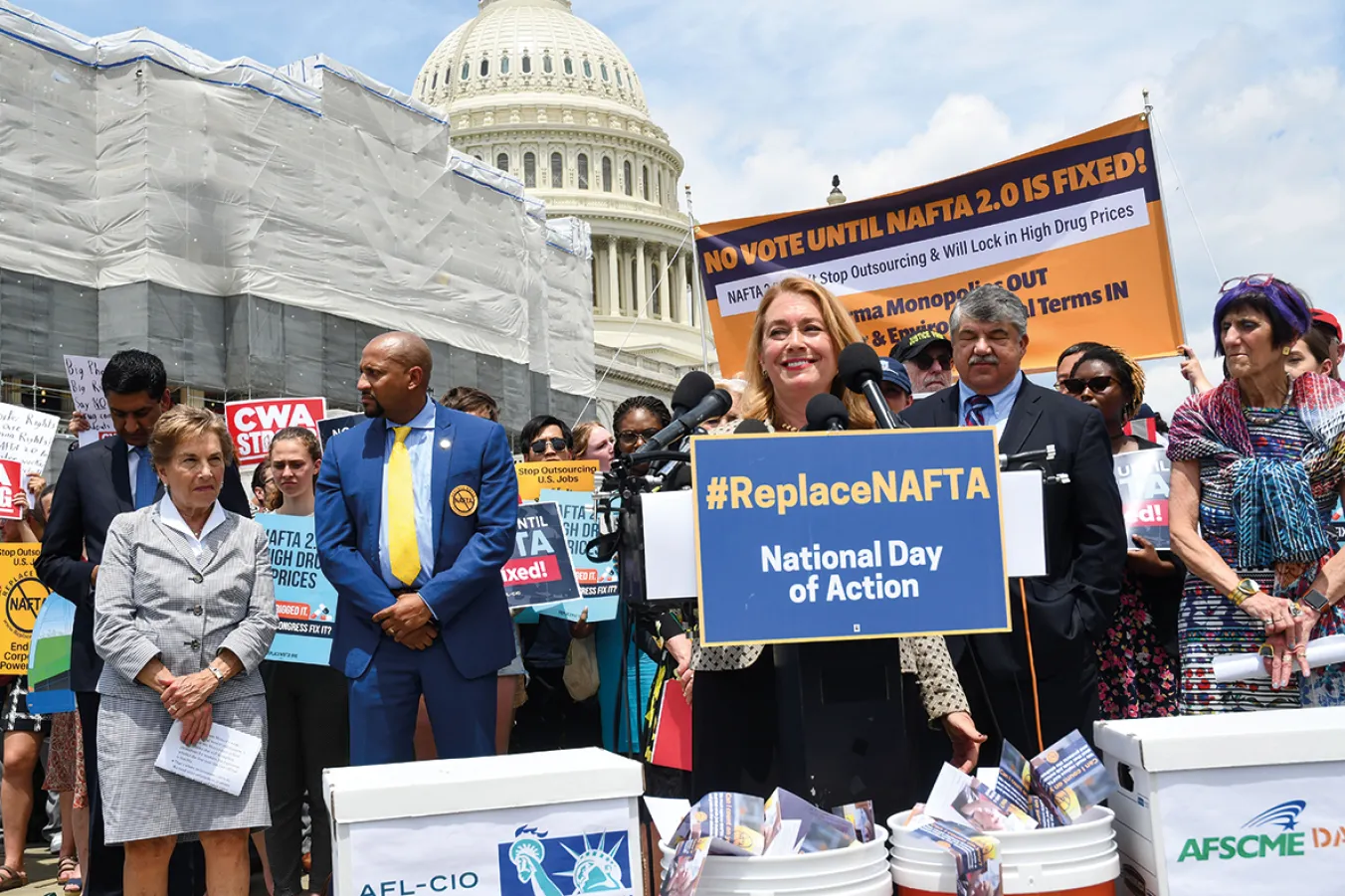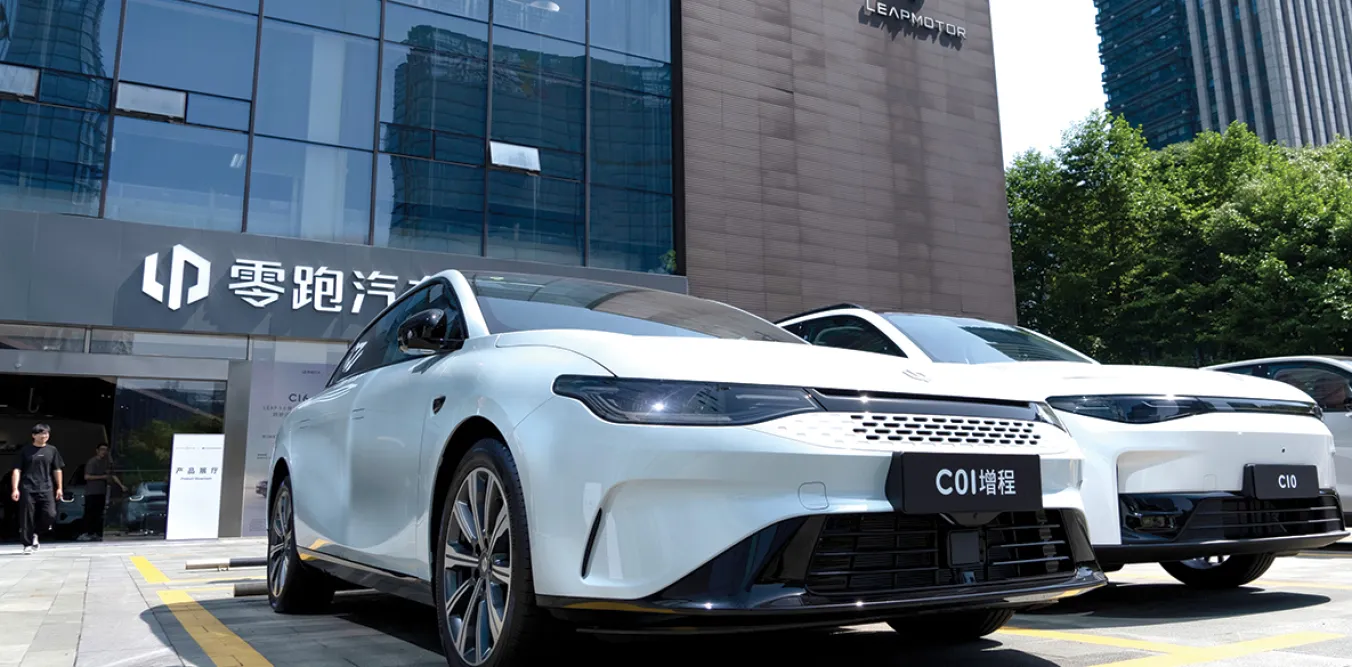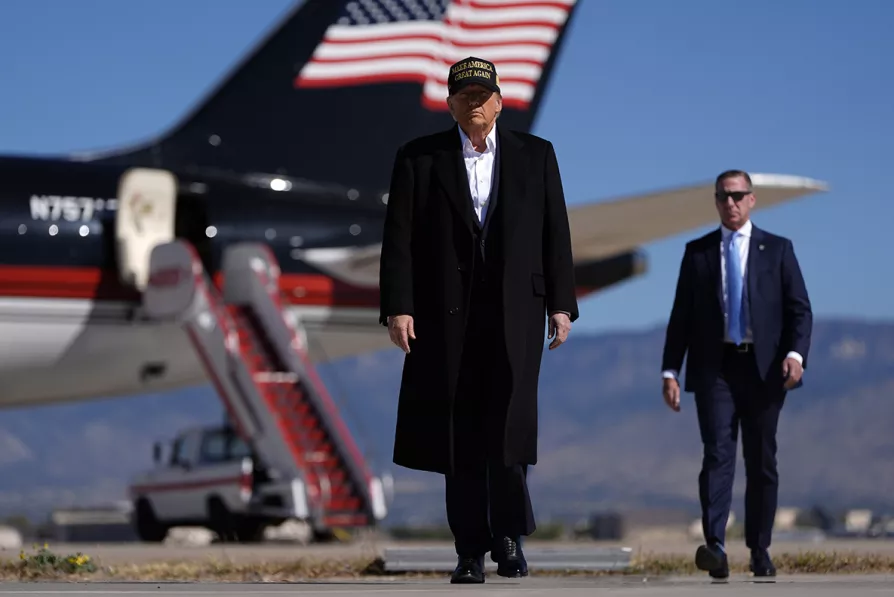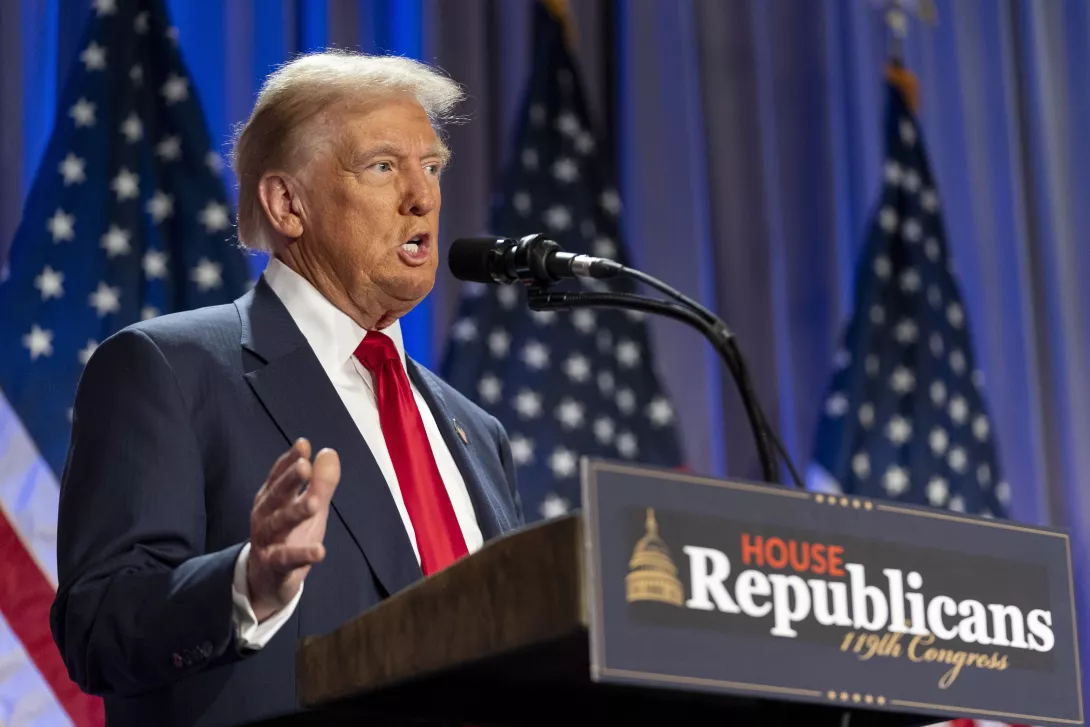
DONALD TRUMP is forcing the labour movement around the world to take an attitude towards trade.
The bland assumptions of free trade which have been accepted as the norm for decades are going to be challenged by the new US administration.
This week Trump has announced that he will impose punitive tariffs “on day one” on China and on immediate neighbours Canada and Mexico.
These are in response to alleged failures in the three countries in controlling migration towards the United States and/or the illicit export of constitutive elements of fentanyl, part of the vast drug addiction problem that has developed in the US.
As such, these tariffs can be seen for what they are — attempts to bully countries into line with US policy, including into dealing with internal problems which Washington seems unable to fix on its own.
They are of a piece with the promiscuous use of sanctions by both Republican and Democratic administrations to coerce foreign states into supporting aggressive US policies around the world. Those should be opposed by anyone who values national independence and international law.
But Trump clearly has larger ambitions in mind. He believes that if the US runs a trade deficit with another state, then it is being ripped off. He also believes that tariffs directed against major competitors like China and the European Union can help rebuild industry in the US itself.
It is this last argument that has helped win him considerable working-class support, and even the indulgence of elements of the organised labour movement.
This is based on a recognition of the devastation caused to industrial communities by the loss of manufacturing jobs in particular over the last 40 years or so. One of the pathologies that has flourished in the hellscapes of deindustrialisation is indeed opioid addiction.
But tariffs are no act of philanthropy towards the working class. They are also a weapon in the struggle of monopoly capitalism to protect markets and profits. Just as much of finance capital has benefitted from the massive export of capital and jobs to China and elsewhere, so other sections will gain from having a protective barrier being flung around the vast US market.
Strategic considerations also underpin Trump’s policy. Reduced access to the US will, he hopes, retard Chinese economic development and delay the moment when its economy surpasses the US in size.
In fact, given the diversity of China’s trading patterns and the ample warnings given of this impending trade war, such impact is likely to be limited.
More probably, such measures will enhance the global drift away from the dollar. Many Republican business leaders are hoping Trump’s bark will be worse than his bite.
The labour movement has often advocated either specific import controls or a more general control over foreign trade. One of the foundations of socialist economy in the Soviet Union and elsewhere was the nationalisation of trade.
At the same time it needs to recognise that tariff wars are a stage in international capitalist competition linked historically to shooting wars. Like many questions, there is no good answer to the tariff issue while the capitalist class remains in charge.
As the frenzy over Trump’s measures escalates, the left should base its approach on the wise words of German socialist Rudolf Hilferding in his seminal Finance Capital, published more than a century ago: “The proletariat avoids the bourgeois dilemma —protectionism or free trade — with a solution of its own … socialism, the organisation of production, the conscious control of the economy not by and for the benefit of capitalist magnates but by and for society as a whole…”
